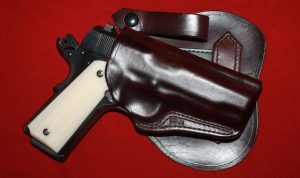
By Dave Workman
Editor-in-Chief
A three-judge panel of the U.S. Fourth Circuit Court of Appeals ruled Tuesday in a 2-1 decision that the federal law barring young adults under age 21 from purchasing handguns from licensed retailers is unconstitutional, and the ruling will most likely be appealed.
According to the Washington Post, the ruling “could have implications for efforts to restrict such sales nationally.”
Writing for the majority, Judge Julius N. Richardson, a Donald Trump appointee, observed, “Despite the weighty interest in reducing crime and violence, we refuse to relegate either the Second Amendment or 18-to-20-year-olds to a second-class status.”
He was joined in the 88-page opinion by George W. Bush appointee Judge G. Steven Agee, with Judge James A. Wynn dissenting. Judge Wynn is a Barack Obama appointee.
“No, the Second Amendment is exceptional not because it is uniquely oppressed or imperiled, but rather because it is singularly capable of causing harm,” Wynn wrote.
He also argued, “But the majority’s decision to grant the gun lobby a victory in a fight it lost on Capitol Hill more than fifty years ago is not compelled by law.”
But Judge Richardson’s summation may lay the groundwork for other legal challenges in other districts.
“But while Congress—or judges—may have struck a different balance long after ratification, that role is foreclosed to us by the balance that the Founders chose,” Judge Richardson wrote. “We cannot now second-guess or undermine their choice. History makes clear that 18- to 20-year-olds were understood to fall under the Second Amendment’s protections. Those over 18 were universally required to be part of the militia near the ratification, proving that they were considered part of “the people” who enjoyed Second Amendment rights, and most other constitutional rights apply to this age group. And Congress may not restrict the rights of an entire group of law-abiding adults because a minuscule portion of that group commits a disproportionate amount of gun violence. Congress’s failure to connect handgun purchases from licensed dealers to youth gun violence only serves to highlight the law’s “unduly tenuous ‘fit’” with the government’s substantial interests. Craig, 429 U.S. at 202.
“Eighteen- to twenty-year-olds have Second Amendment rights,” the judge concluded, “and the challenged laws impermissibly burden those rights. As a result, we vacate the district court’s grant of the motion to dismiss, reverse the denial of summary judgment, and remand for further proceedings.”



